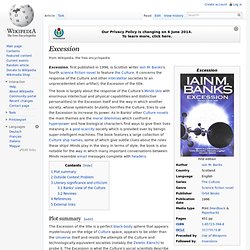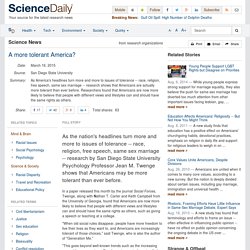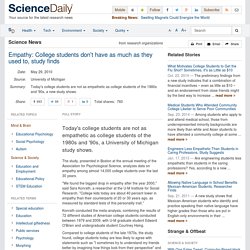

Flower PS3 Gameplay Double-blind_water.pdf. Quote Of The Day Archives: ...Kinds Of People. Excession. Excession, first published in 1996, is Scottish writer Iain M.

Banks's fourth science fiction novel to feature the Culture. It concerns the response of the Culture and other interstellar societies to an unprecedented alien artifact, the Excession of the title. Plot summary[edit] The Excession of the title is a perfect black-body sphere that appears mysteriously on the edge of Culture space, appears to be older than the Universe itself and resists the attempts of the Culture and technologically equivalent societies (notably the Zetetic Elench) to probe it.
The Excession is what the Culture's social scientists describe as an Outside Context Problem, one which a society cannot foresee and is often fatal. It turns out that the Affront have been manipulated into their grab for power by another Culture faction which thought it was morally imperative to curb the Affront's cruelty by any means, and intend to use the Affront's theft of Culture warships as an excuse for war. Reviews[edit] Lindisfarne Association.
The Lindisfarne Association (1972-2012) was a group of intellectuals of diverse interests organized by cultural historian William Irwin Thompson for the "study and realization of a new planetary culture".

It was inspired by the philosophy of Alfred North Whitehead's idea of an integral philosophy of organism, and by Teilhard de Chardin's idea of planetization.[1][2] In his book Reimagination of the World, Thompson described his reasons for naming his group after Lindisfarne, an island with a famous monastery (once inhabited by Saint Cuthbert) just off the coast of Northumberland in the North East of England: "Although I used the word as a symbol of a small group of people effecting a transformation from one system to another, the word also brought with it the archetypical associations of a small group of monks holding onto ancient knowledge in a fallen world, a world that would soon overrun them during the Viking terror.
"[3] History[edit] Goals[edit] Members[edit] Current status[edit] Answers - The Most Trusted Place for Answering Life's Questions. Tolerance in the U.S. As the nation's headlines turn more and more to issues of tolerance -- race, religion, free speech, same sex marriage -- research by San Diego State University Psychology Professor Jean M.

Twenge shows that Americans may be more tolerant than ever before. In a paper released this month by the journal Social Forces, Twenge, along with Nathan T. Carter and Keith Campbell from the University of Georgia, found that Americans are now more likely to believe that people with different views and lifestyles can and should have the same rights as others, such as giving a speech or teaching at a college. "When old social rules disappear, people have more freedom to live their lives as they want to, and Americans are increasingly tolerant of those choices," said Twenge, who is also the author of "Generation Me.
" "This goes beyond well-known trends such as the increasing support for gay marriage. Tolerance for different views Tolerance by generations. Empathy: College students don't have as much as they used to, study finds. Today's college students are not as empathetic as college students of the 1980s and '90s, a University of Michigan study shows.

The study, presented in Boston at the annual meeting of the Association for Psychological Science, analyzes data on empathy among almost 14,000 college students over the last 30 years. "We found the biggest drop in empathy after the year 2000," said Sara Konrath, a researcher at the U-M Institute for Social Research. "College kids today are about 40 percent lower in empathy than their counterparts of 20 or 30 years ago, as measured by standard tests of this personality trait.
" Konrath conducted the meta-analysis, combining the results of 72 different studies of American college students conducted between 1979 and 2009, with U-M graduate student Edward O'Brien and undergraduate student Courtney Hsing. "It's not surprising that this growing emphasis on the self is accompanied by a corresponding devaluation of others," O'Brien said.